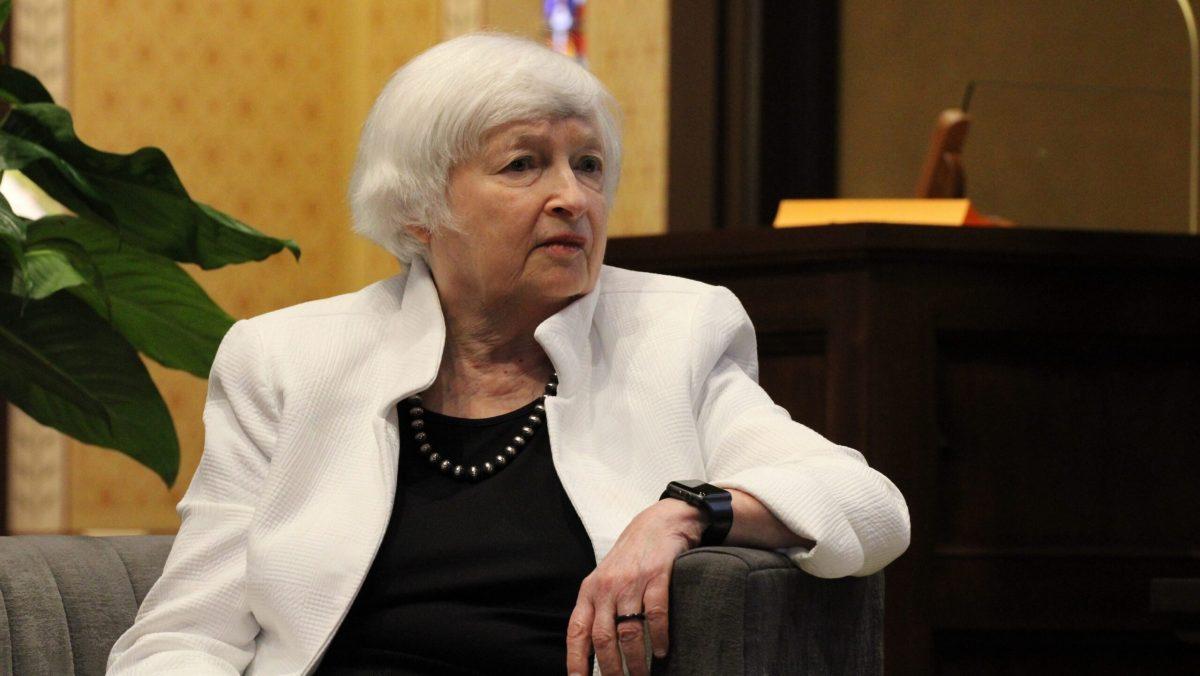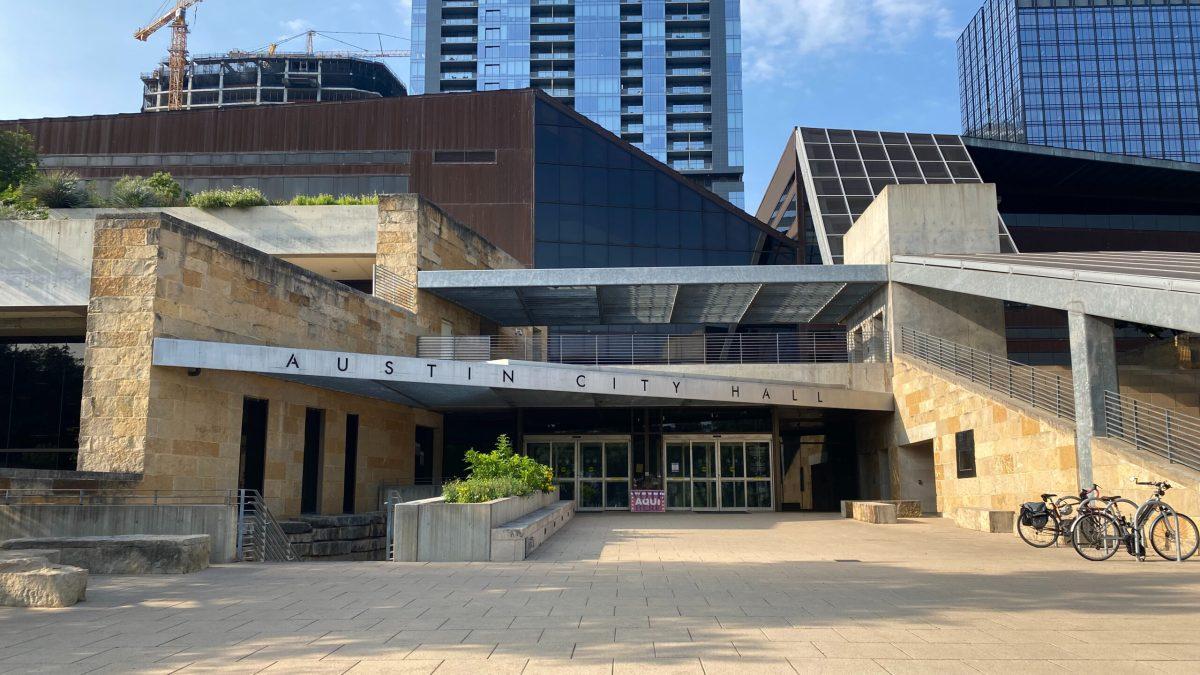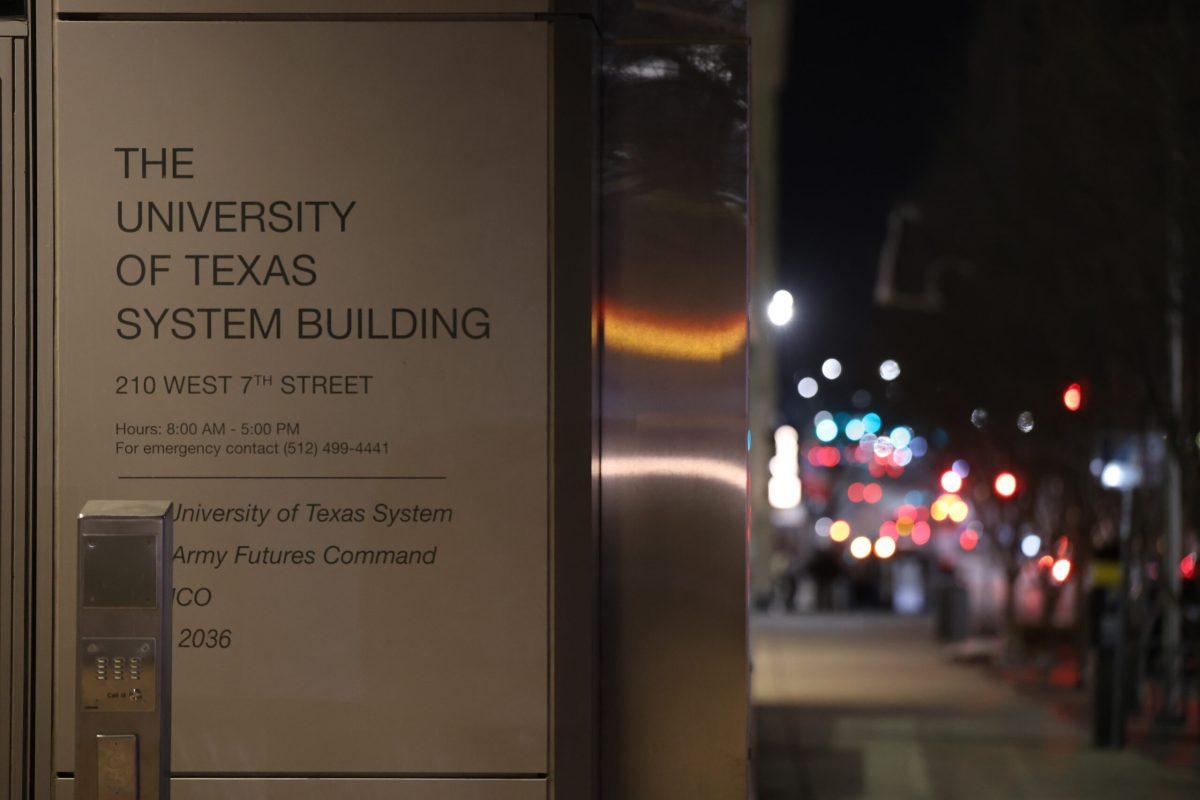United States Secretary of the Treasury Janet Yellen reinforced the benefits of sanctions and Biden administration economic initiatives and addressed the controversial Pennsylvania steel deal at The Texas Tribune Festival Saturday.
Yellen was interviewed by Bloomberg News correspondent David Gura in the Sanctuary of St. David’s Episcopal Church.
Many of Gura’s questions revolved around the state of the economy and inflation. Yellen acknowledged slowed growth in the labor market, but pointed to low levels of unemployment insurance claims and gradual increases in wages as positive financial indicators.
“(We’ve seen) very strong growth, with the economy operating basically at full employment … (as well as) inflation coming down substantially,” Yellen said.
Yellen also explained why the federal reserve hasn’t been forced to trigger a recession, citing upticks in the economy as a mediator to economic concerns that were more prevalent in 2022 and 2023.
“When the Fed tightens and causes a recession, it’s often because the labor market has tightened,” Yellen said. “It’s gradually curbed (lately).”
She also emphasized her focus on enacting Biden administration economic priorities, namely the current antitrust policy and the administration’s use of sanctions as an enforcement method globally.
President Joe Biden’s administration has faced criticism over its use of sanctions, having implemented an unprecedented number of them. According to the Center for a New American Security, the Biden administration has implemented more than double the average number of sanctions waged annually by the U.S.under the previous administration. Yellen sees sanctions as an asset, especially considering the U.S.’ financial power.
“I think it can be a potent tool when used in the right context,” Yellen said. “The dollar is the world’s currency.”
However, Yellen also noted that sanctions weaken in effectiveness over time.
The treasury department has also emphasized reforming the IRS’ lackluster customer service and equitable enforcement record. Under Yellen’s command, the IRS went from 20% of customer service calls answered to 88% answered within three minutes, thanks in part to an $80 billion infusion of funds. She said the IRS is also working to ensure outstanding funds are paid from all who owe them equitably.
“Current estimates say that close to one trillion dollars a year are not paid that are due – it’s called the ‘tax gap,’” Yellen said. “We fought really hard for the Internal Revenue Service to get the resources it needs to collect those revenues.”
However, Yellen noted that the revenue collection can’t follow precedent in who it targets overzealously if it wants to achieve its equitable goal.
“A disproportionate amount of the enforcement budget went into making sure that poor people who earned the earned income tax credit didn’t cheat,” Yellen said.
Yellen was also questioned on a controversial ban the New York Times says the Biden administration is considering. The ban would forbid Japanese based Nippon Steel from acquiring U.S. Steel, an American company with a large presence in Pennsylvania. Whether or not to allow the purchase depends on the Biden administration and the Committee on Foreign Investment in the U.S.’ rulings on if the acquisition would pose a threat to national security.
“The focus is on national security, is there a national security concern,” Yellen said. “But it could be economic, so part of that is (asking) ‘are supply chains at risk.’ One might worry that an investment could somehow endanger supply chains, that could potentially be taken into account.”
The United Steelworkers union has been outspoken in opposing the deal, and in the swing state of Pennsylvania where voting margins will be close, the support or opposition of a major union could very likely affect the outcome.
When asked about her plans to continue as Secretary after the presidential inauguration, Yellen said “I’m probably done, but we’ll see.”
Before her potential retirement, however, she still has goals to accomplish. Yellen wants to focus on the continued implementation of Biden administration economic initiatives like the CHIPS and Science Act and the rebuilding of infrastructure through funding from the Infrastructure Investment and Jobs Act. She also wants to focus on affordable housing, something she said is a priority.
“We need to use every tool we have to promote that agenda, and we are,” she said.













